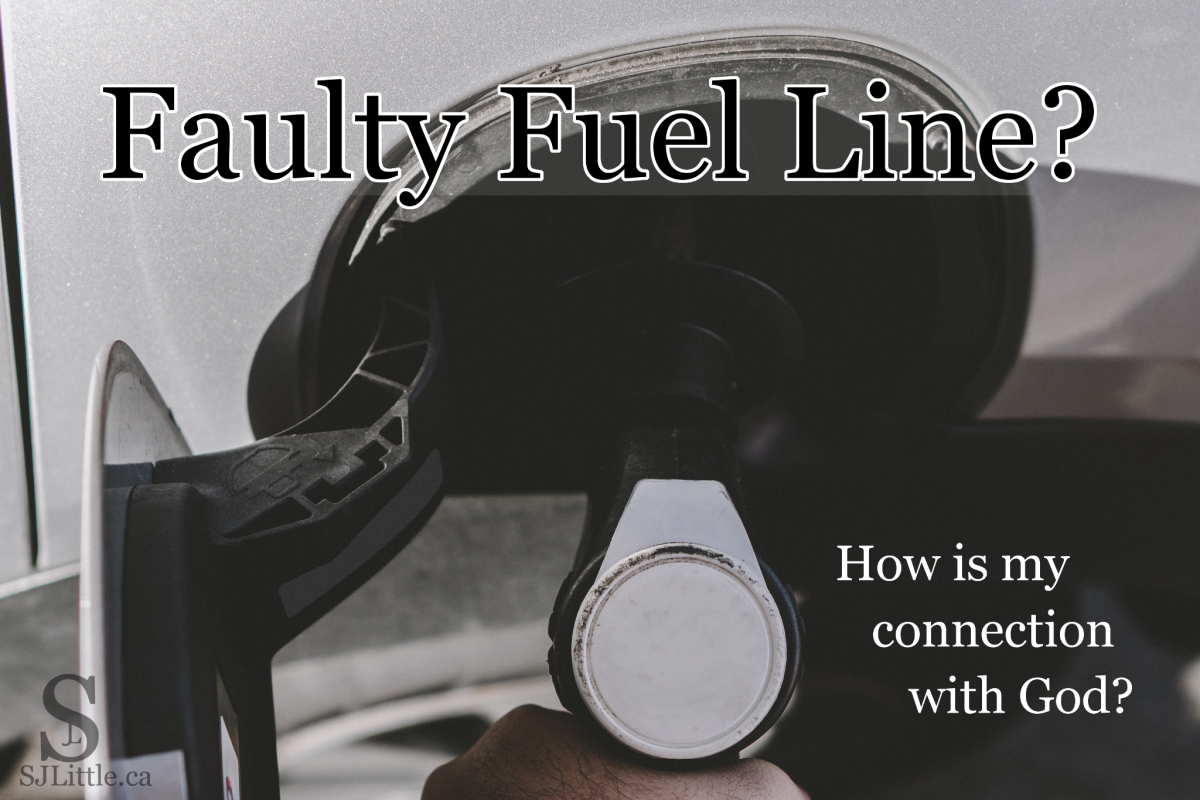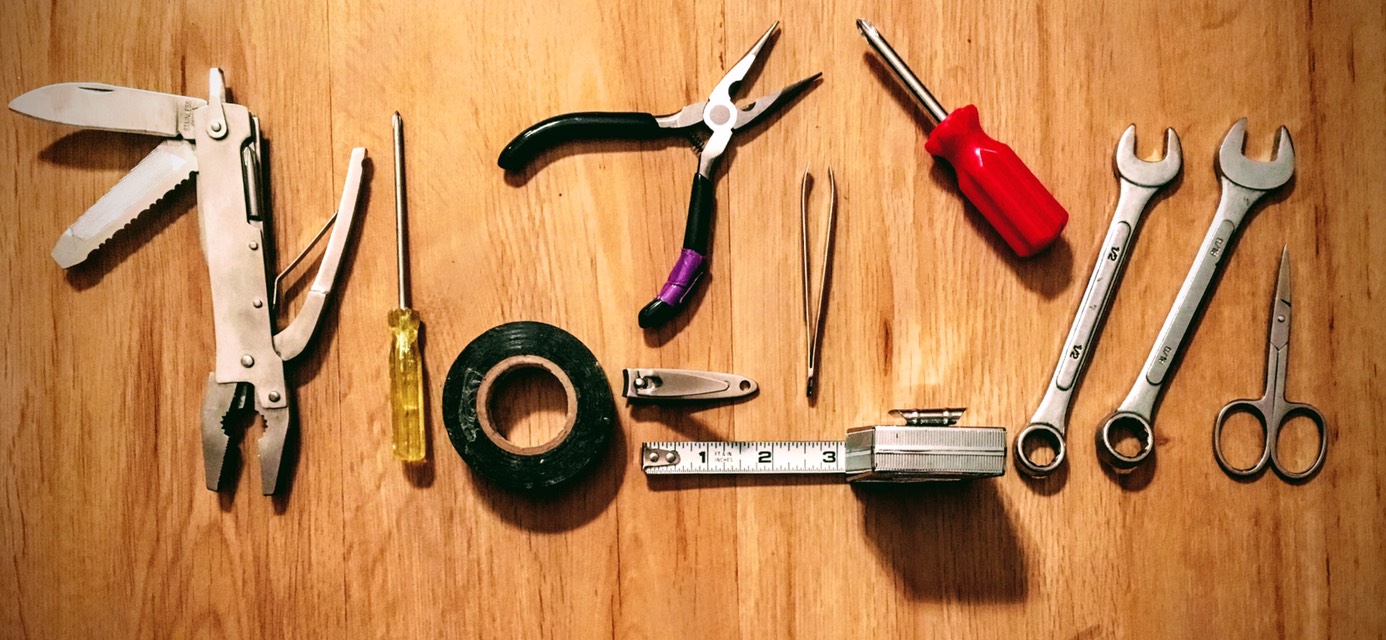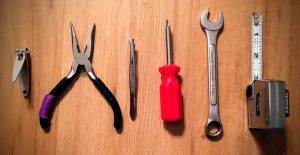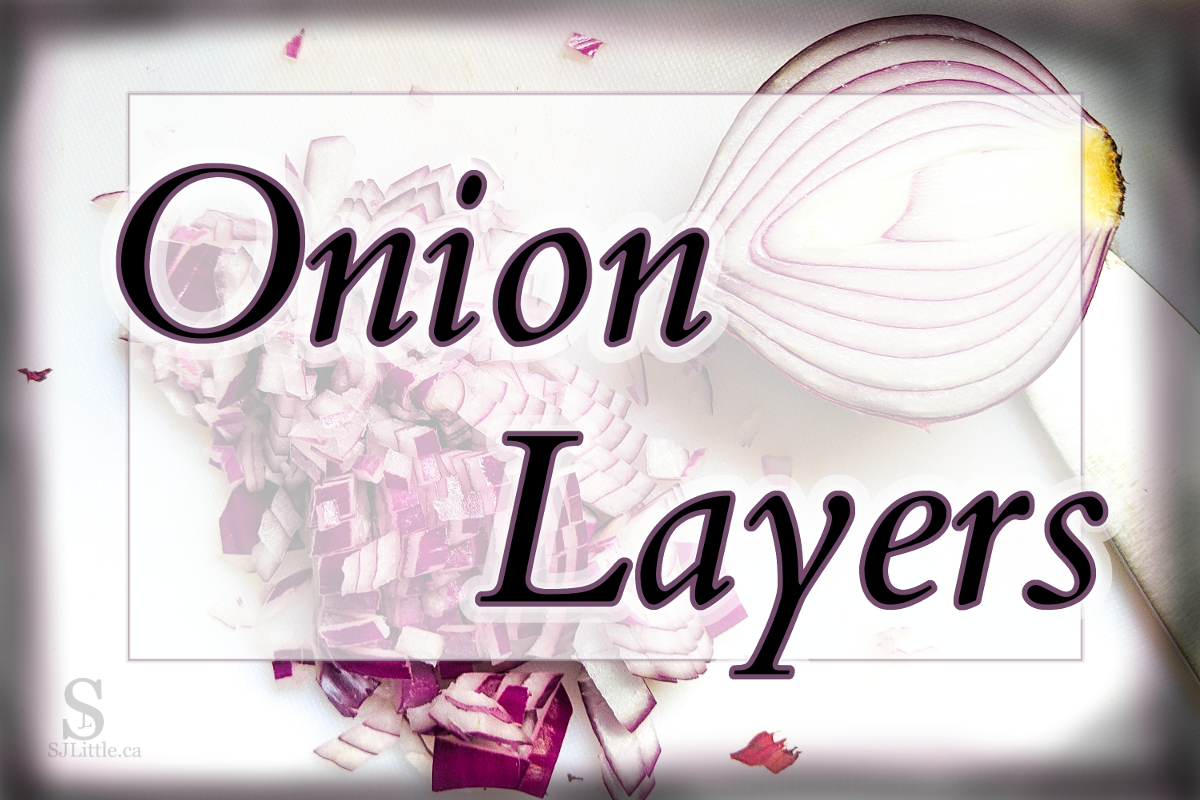
Examining Onion Layers
I glance at the clock. Time to start making supper. As I close my computer and head toward the kitchen, I decide that stroganoff would make a tasty meal tonight.
At the pantry, I reach for onions. Since this batch of onions was starting to go bad, I’m glad the bag is nearly finished. I make a mental note to put them on the shopping list.
Pulling out two onions, I glance at them. One is large and decently healthy looking. The other is small and covered in rot.
I place the cutting board on the counter and begin peeling the larger onion. That done, I locate my favourite knife and slice the onion in half.
I frown at what I see inside.
Although the large onion appeared healthy, the center has a rotting section. With a sigh I dissect it, discarding what’s bad.
I eye the smaller onion. If the onion that had appeared considerably healthier on the outside was rotten at the core, what chance did this miserable looking onion have of containing anything good at all?
Maybe I should just throw it out.
I glance at the pile on my cutting board of chopped good onion. It’s not as big as I want it to be for the meal. I could grab another onion from the bag and out-right discard the bad one. However, I wasn’t planning to shop for groceries for a few more days. With the onion bag so low, perhaps it was worth checking to see if the smaller onion had anything worth keeping.
Resigning myself to the unpleasant task, I gingerly reach for the smaller onion. I’ll give it a try.
I slice the onion open.
To my astonishment, the rot on this onion only went two or three layers deep. Once I peeled away the outside, I had a crisp juicy looking onion. Incredibly, the good parts of this onion looked far healthier than the good parts of the larger onion.
 The good part of the large healthy onion appeared fine and passable, but the good part of the small rotten onion appeared fresh and delicious.
The good part of the large healthy onion appeared fine and passable, but the good part of the small rotten onion appeared fresh and delicious.
I shake my head in wonderment. I’ve long known that onions go bad more or less in layers. Peel away the bad layers and you’ll likely find good usable onion within. This particular bag of onions, however, had thus far contained several onions that appeared mostly healthy on the outside, but had a bad section at their core. How amazing to find that the one onion that looked the worst was actually the best inside.
As I toss the chopped onions into the frying pan and turn on the heat, I find myself thinking about how people can have layers as well.
The Sunday School Lesson
Perhaps the most well-known verse to go with this thought is 1 Samuel 16:7b – a verse I memorized as a child.
“The Lord does not look at the things people look at. People look at the outward appearance, but the Lord looks at the heart.” (1 Samuel 16:7b NIV2011)
When did God say these words? God spoke them through His prophet Samuel when choosing a new king for the nation of Israel. God didn’t choose the strongest or the best looking. He chose David, a young shepherd boy at the time.
Here’s another translation of the verse: “Humans do not see what the Lord sees, for humans see what is visible, but the Lord sees the heart.” (1 Samuel 16:7b CSB)
Just like with the onions, I cannot see what is inside those around me, but God can.
If you grew up attending Sunday school, you’ve probably heard this principle many times. I know I have. It’s an important reminder from time to time, yet as I pondered the onion allegory, I wondered if there was something more for me to learn here.
A Further Onion Allegory
Then I recalled another passage of Scripture – a rather convicting one.
In Matthew 23, Jesus was pointing out the errors of the religious leaders of the day. He said:
“Woe to you, teachers of the law and Pharisees, you hypocrites! You clean the outside of the cup and dish, but inside they are full of greed and self-indulgence. Blind Pharisee! First clean the inside of the cup and dish, and then the outside also will be clean. … You are like whitewashed tombs, which look beautiful on the outside but on the inside are full of the bones of the dead and everything unclean. In the same way, on the outside you appear to people as righteous but on the inside you are full of hypocrisy and wickedness.” (Matthew 23:25-28 NIV2011)
For now, the lesson for me to consider has to do with my own core. What are my thoughts like and how do I behave when no one is there to see me? Am I rotten in these private unseen parts of my life?
It is so easy to do as the Pharisees did and focus on making the outside of my life look good.
Earlier in the same chapter, Jesus had said: “Everything they do is done for people to see.” (Matthew 23:5a NIV2011)
So how am I doing? Am I seeking God with all my heart or is it all for show? Am I giving Him room to work in the hidden areas of my life to be transforming me into His image? Or do I need to repent of selfishness and greed and hypocrisy and wickedness?
Will I be like the religious leaders who prompted Jesus’ cry at the end of Matthew 23?
“Jerusalem, Jerusalem, you who kill the prophets and stone those sent to you, how often I have longed to gather your children together, as a hen gathers her chicks under her wings, and you were not willing.” (Matthew 23:37 NIV2011)
Or do I pray as David did?
“Search me, O God, and know my heart!
Try me and know my thoughts!
And see if there be any grievous way in me,
and lead me in the way everlasting!”
(Psalm 139:23-24 ESV)






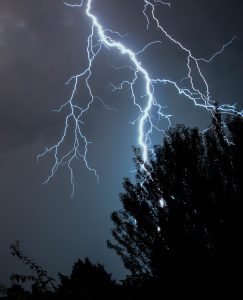 business of tapping on trees, whether looking for bugs to eat or building himself a home.
business of tapping on trees, whether looking for bugs to eat or building himself a home.
